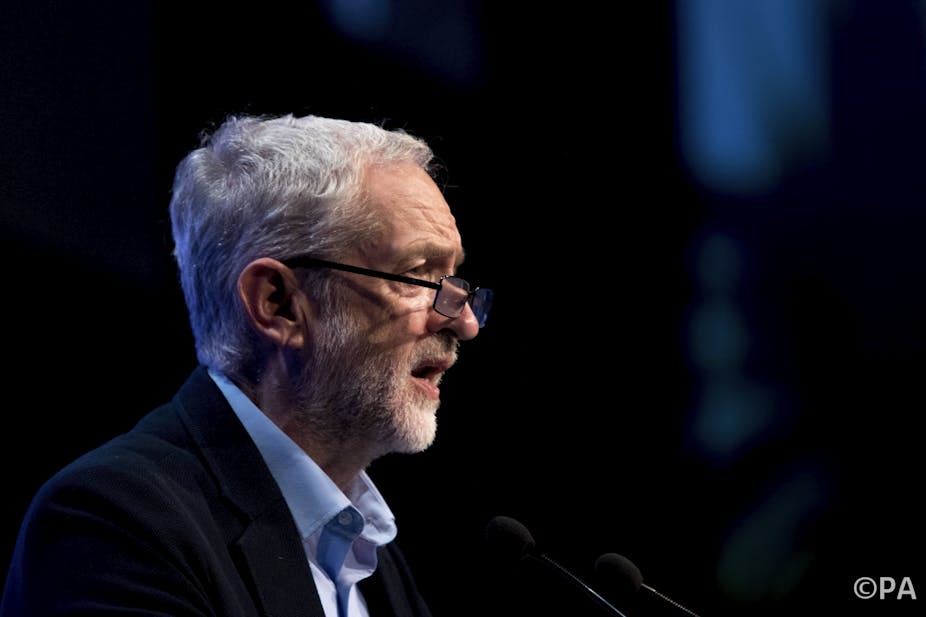Jeremy Corbyn’s Labour leadership victory has helped to push state ownership back to the forefront of public policy debate in the UK. His belief in public ownership in the banking sector has stoked the question of whether it could play a vital role in funding infrastructure projects and innovation in the manufacturing sector.
Corbyn is part of a growing clamour to renationalise Britain’s privatised rail companies, while opinion polls show majority support for taking the energy and water sectors back into public hands.
Yet in his first few days in office, Corbyn has been pilloried for promoting renationalisation. Britain remains a country where much of the political elite set its face against any notion of public ownership, remaining in thrall to market-based and private solutions as the panacea for all of society’s ills.
Elsewhere it is a very different story. Much of the rest of the world is turning its back on privatisation and developing innovative new and hybrid models of public ownership. As I wrote in a report for the Centre for Labour and Social Studies think tank last year, this could represent the emergence of a new and more democratic form of economy.
The public comeback
Since 2000, 86 major cities around the world have taken back their water systems from private contractors. This started in Latin America with violent uprisings in 2000 against massive hikes in water prices in the city of Cochabamba in Bolivia but then spread to La Paz and other cities and regions throughout the continent. Subsequently cities as diverse as Atlanta, Houston, Indianapolis, Paris, Bordeaux, Toulouse and Berlin have followed suit. In Uruguay and Mali, national water services have also been returned to public hands after failed privatisation experiments.
Denmark’s remarkable leap forward to become a world leader in renewable energy has been based primarily on local forms of municipal and co-operative ownership of wind turbines and combined heat-and-power systems. The country has also witnessed new hybrid forms of ownership such as the Mittelgrunden offshore windfarm off the coast of Copenhagen, which is part-owned by a consumer cooperative and part-owned by the city council.
Similar hybrid models are being created in water, gas and energy sectors around the world, from Argentina to Germany. Jeremy Corbyn has extolled the virtues of Germany as the model for energy renationalisation in the UK. Beyond Berlin, more than 100 city and regional electricity distribution networks have come back under public ownership since 2007, while 44 new local public energy companies called stadtwerke have been established, charged with producing their own renewable energy supplies.

What lies behind
There are several unifying factors driving this dramatic turnaround. The first is dissatisfaction with the consequences of privatisation. With the exception of telecoms – where the performance is mixed – the evidence suggests that privatised utilities have not delivered on the promise of greater efficiencies, management innovation and modernisation of networks and services. Instead they have turned into lucrative cash cows that, because they are essential public services and usually natural monopolies, can yield high returns for private capital. Some UK electricity distribution companies have made 30% profits in recent years, according to one estimate.
A second factor is the hard economics of public finances. Cash-strapped cities and regions are rediscovering that public utilities can provide profitable and sustainable revenue streams to cross-subsidise other services in times of austerity and budget cutbacks by national governments. In Frankfurt, as in many other German cities, the local stadtwerke finances local swimming pools, parks, libraries and other public services.
Then there is what might be termed the growing infrastructure crisis. Rather than privatisation leading to new and more efficient management, or modernising ageing plant and infrastructure, it has resulted in public assets being sweated for private gain. The UK is perhaps the most extreme example. Three decades of energy privatisation have left the country with the real threat of “the lights going out” because the sector has not invested in new capacity and much of its existing power generation capacity from coal and nuclear is reaching the end of its life.
Elsewhere we see less dramatic versions of the same problem. In Germany, the political decision to end nuclear power has left it dependent on its old and polluting coal-fired power stations. The big three utilities have thus far shown little appetite for delivering the country’s commitments to a renewable and a carbon-free future, when they can make vast profits from their existing carbon sources of power.
New normal?

Politicians everywhere are discovering that with privatised regimes, vested interests set the broader economic agenda and short-term profit-making is trumping the likes of climate-change priorities and delivering cheap and secure supplies to consumers. The most successful countries in the 21st century are likely to be those where forms of state ownership play a leading and even expanding role. This is already evident with Chinese capitalism and its many national and local layers of state enterprise – and in the role its sovereign-wealth funds are playing internationally.
A different model of decentralisation is behind Germany’s advances in this area, with federal state-owned banks (länder) financing much of the drive by the stadwerke to grow renewable energy capacity. Nowhere is this more evident than in Munich, where the city’s publicly owned energy company has since 2008 spent €9bn (£6.5bn) on its mission to supply 100% of the city’s electricity from renewables by 2025.
Britain too is not immune to the new mood for localised public ownership. In England, cities as diverse as Woking, Gateshead and Nottingham have set up their own publicly owned energy and heating systems. I understand that Bristol has been keen to learn from the “Hamburg model”, where a local public energy company created in 2009 already has more than 100,000 customers. Meanwhile Aberdeen City Council already has its own award-winning heat and power company.
It’s about time we stopped attacking the likes of Jeremy Corbyn and learned from what is happening both on our doorsteps and around the world.

